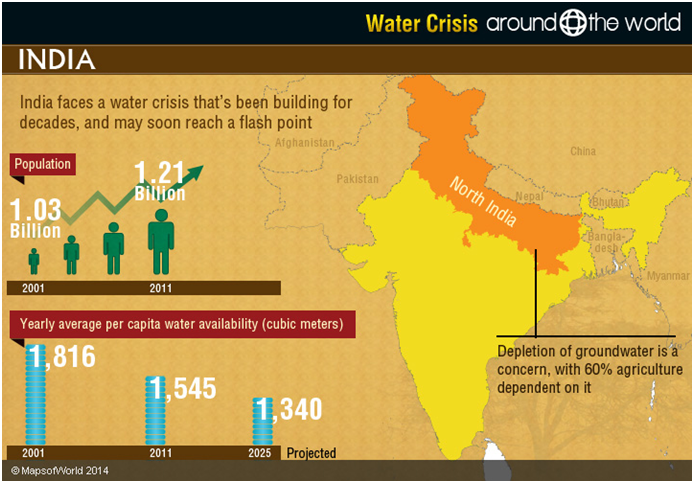NITI Aayog Organises Capacity Building Programme for Urban Water Management
GS 3: Economy | Infrastructure: Energy, Ports, Roads, Airports, Railways etc.
Why in News?
- The Second Phase of Urban Management Programme on ‘Water Recycling and Reuse’ was organized by the NITI Aayog in collaboration with the Singapore Cooperation Enterprise & TF International at the Indian Habitat Centre in New Delhi on November 26, 2018.

Significance of the program:
- Highlighting the importance of this capacity building programme on management of water, particularly its recycling & reuse, as crucial for future urban planning and policy
- The attaining high rates of economic growth for India will directly be a function of the sustainable use of water.
- NITI’s Composite Water Management Index, launched earlier this year, is a step toward increasing awareness and promoting best practises in water management throughout the country.
Highlights:
- The National Institution for Transforming India (NITI) Aayoghave signed a Memorandum Of Understanding (MoU) with Singapore Cooperation Enterprise- Temasek Foundation International to launch the second Phase of Urban Management Programme on ‘Water Recycling And Reuse.’
- A total of eight States including UTs have been selected for the capacity building workshops. Senior officials from Municipal and Parastatal Bodies of the Uttar Pradesh, Tamil Nadu, Punjab, Chhattisgarh, Karnataka, Meghalaya, Puducherry, and West Bengal participated in the workshop.
- With a steady rise in Urban population from 29 crores in 2001 to 37.7 in 2011, the demand for the water in the urban areas is increasing rapidly.
- To ensure the availability of the water in the Urban areas where people face acute water shortage, the Government is going to implement rainwater harnessing schemes for groundwater improvement.
Recycle and Reuse:
- The ‘Recycle and Reuse’ technique has been widely practiced in Singapore where the water is recycled for the use. Such an approach is expected not only to reduce pressure on the water sources but is also expected to offer a sustainable solution for water resources management.
- Nearly 30% of urban water supply and 70% of rural water supply in the country comes from groundwater, which is depleting day by day.







